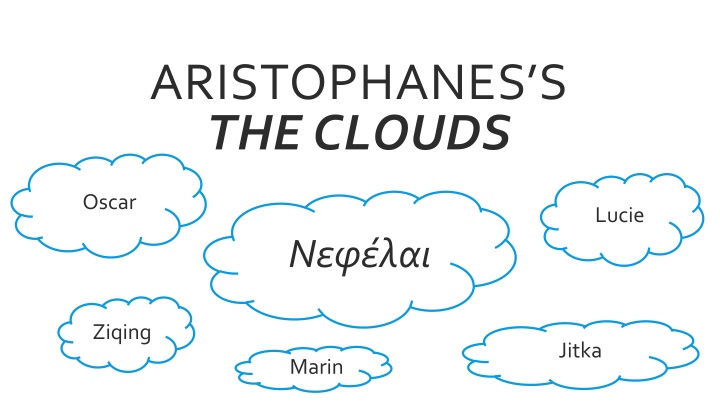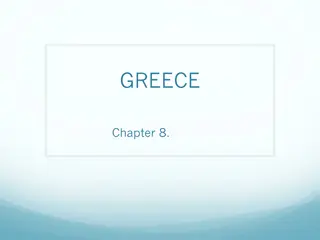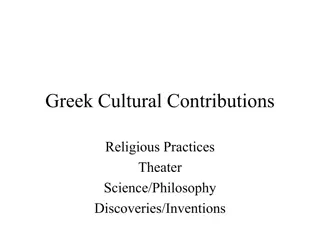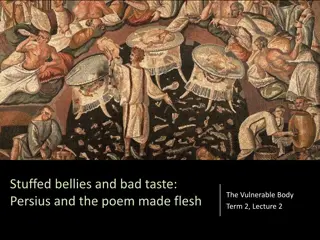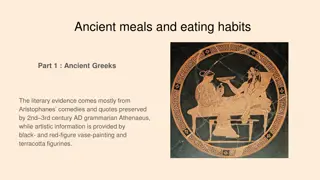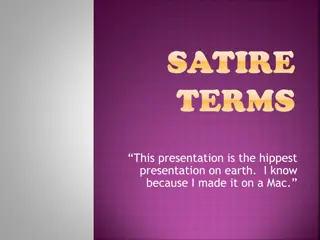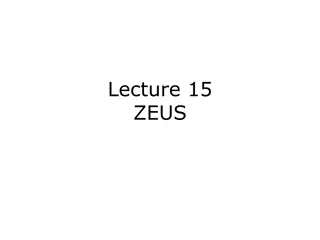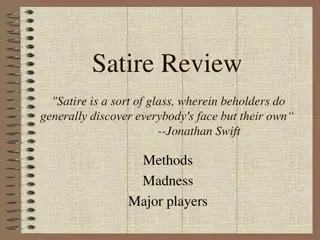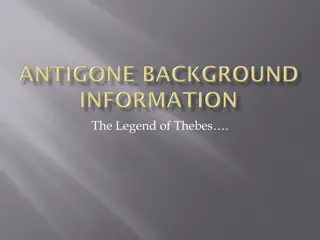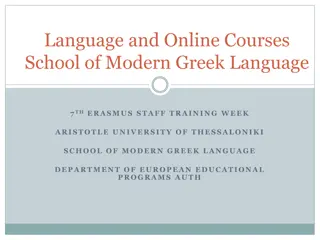Aristophanes: Master of Ancient Greek Comedy and Satire
Aristophanes, a prominent figure in ancient Greek comedy, wrote 40 plays with only 11 surviving to this day. His play "The Clouds" criticized contemporary politics and education, even portraying Socrates unfairly. Despite facing challenges during his time, Aristophanes's works continue to be appreciated for their intellectual satire and humor that transcends generations.
Download Presentation

Please find below an Image/Link to download the presentation.
The content on the website is provided AS IS for your information and personal use only. It may not be sold, licensed, or shared on other websites without obtaining consent from the author.If you encounter any issues during the download, it is possible that the publisher has removed the file from their server.
You are allowed to download the files provided on this website for personal or commercial use, subject to the condition that they are used lawfully. All files are the property of their respective owners.
The content on the website is provided AS IS for your information and personal use only. It may not be sold, licensed, or shared on other websites without obtaining consent from the author.
E N D
Presentation Transcript
ARISTOPHANESS THE CLOUDS Oscar Lucie Ziqing Jitka Marin
ARISTOPHANES Born around 446 BC in Athens (Golden Age) Came from a wealthy family (received an excellent education) Greatest representative of ancient Greek comedy Wrote 40 plays out of which 11 survived The Clouds 423 BC, revised later (we do not have the original) The Wasps, The Birds, The Frogs, Lysistrata Criticized contemporary politics (imperialist Athens) Made fun of modern education and morals (sophists) One of the victims: Socrates Purposely (and unfairly) given many of their characteristics Plato: The Clouds = slander thatcontributed to Socrates s trial and execution (399 BC)
BACKGROUND Thematic shift for the work of Aristophanes from Political satire on the Peloponnesian war Recorded not to be successful in its time receiving 3rd (last) place Satire on the intellectual culture of Athens great thinkers get nothing done see: play s ending
ANIMALS AND THE PLOT Action of the play is driven by P. s debt on account of horse racing Lizard that defecates on Socrates Socrates s new ideas: Measurement of distance jumped by a flea Gnat s buzzing noise made by a hollow, trumpet-shaped hind-quarters as it moves An overall theme of nature and its positing among the intellectual class: Socrates s ideas and the chorus as clouds
INTELLECTUAL SATIRE, A PURELY ANCIENT IDEA?; DOES THE HUMOUR TRANSLATE? Basic principle relies on satirising and questioning of those perceived to be powerful and useful to their society really they are frauds and/or clowns! Monty Python s Life of Brian (1979) Marx Brothers sDuck Soup (1933) Stanley Kubrick s Dr. Strangelove (1964) Aristophanes even breaks the fourth wall chorus s rebuke of the audience: May I secure both victory and renown as certainly as I hold you for adept critics and as I regard this comedy as my best [W]hich had cost me much trouble, but whichI withdrew, unjustly beaten by unskilful rivals. It is you, oh, enlightened public, for whom I have prepared my piece, that I reproach with this. Nevertheless I shall never willingly cease to seek the approval of the discerning. I have not forgotten the day, when men, whom one is happy to have for anaudience, received my Virtuous Young Man and my Paederast with so much favour in this very place Myvalue is so well known, that I take no further pride in it. I do not seek to deceive you, by reproducing the same subjects two or three times; I always invent fresh themes to present before you, themes that have no relationto each other and that are all clever as for you, who love and applaud my inventions, why, posterity willpraise your good taste.
INTELLECTUAL SATIRE, A PURELY ANCIENT IDEA?; DOES THE HUMOUR TRANSLATE? Perhaps one of the more apparent types of humour for a modern audience is the lewd masturbation joke: Socrates: Have you got hold of anything? [speaking metaphorically of an idea] Strepsiades: No, nothing whatsoever. Socractes: Nothing at all? Strepsiades: No, nothing except my tool, which I ve got in my hand!
